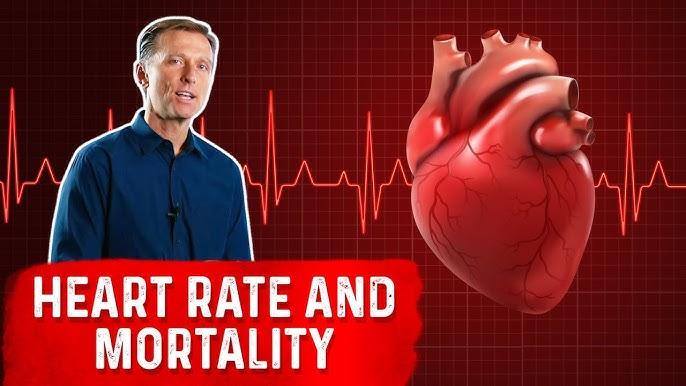Sinus bradycardia is a condition where the heart rate is slower than normal, usually defined as fewer than 60 beats per minute (bpm) in an adult. This condition can be benign in some individuals, such as athletes, but can also indicate underlying health issues or adverse effects of medications. Understanding the causes, symptoms, and appropriate treatments is crucial for managing sinus bradycardia effectively.
What Is Sinus Bradycardia?
Sinus bradycardia originates in the sinoatrial (SA) node, the natural pacemaker of the heart. This node generates electrical impulses that travel through the heart muscle, causing it to contract and pump blood.
When the SA node fires at a slower rate than normal, it results in bradycardia.
SEE ALSO: 5 Ways to Prevent Sudden Cardiac Death
Causes of Sinus Bradycardia
Physiological Factors:
Athletic Training: Athletes often have lower resting heart rates due to increased cardiovascular efficiency.
Sleep: It is normal for the heart rate to decrease during sleep.
Pathological Factors:
Hypothyroidism: Low thyroid hormone levels can slow down metabolic processes, including heart rate.
Electrolyte Imbalances: Imbalances in potassium, calcium, and magnesium levels can affect heart rate.
Sick Sinus Syndrome: Dysfunction of the SA node leading to irregular heart rhythms.
Myocardial Infarction: Damage to the heart muscle can impact its electrical system.
Medications:
Beta-blockers: These medications reduce heart rate by blocking the effects of adrenaline.
Calcium Channel Blockers: These drugs can slow the heart rate by affecting the movement of calcium into heart cells.
Digitalis: Used to treat heart conditions but can sometimes slow the heart rate excessively.
Other Medical Conditions:
Increased Intracranial Pressure: Conditions like brain injury or tumors can affect heart rate.
Infections: Some infections like Lyme disease can impact the heart’s electrical system.
Symptoms of Sinus Bradycardia
Sinus bradycardia can be asymptomatic or symptomatic. When symptoms occur, they are often due to inadequate blood flow and oxygen delivery to the body’s organs and tissues.
Common Symptoms
Fatigue: Feeling unusually tired or exhausted.
Dizziness: Lightheadedness or a feeling of spinning.
Syncope: Fainting or near-fainting spells.
Chest Pain: Discomfort or pain in the chest, which can be indicative of insufficient blood flow to the heart.
Shortness of Breath: Difficulty breathing, especially during physical activity.
Confusion or Memory Problems: Reduced blood flow to the brain can affect cognitive function.
Diagnosis of Sinus Bradycardia
A thorough evaluation is essential to diagnose sinus bradycardia and determine its underlying cause.
Diagnostic Tools
Electrocardiogram (ECG): The primary tool for diagnosing bradycardia, an ECG records the heart’s electrical activity.
Holter Monitor: A portable ECG device worn for 24-48 hours to record the heart’s activity over time.
Event Monitor: Similar to a Holter monitor but used for longer periods, allowing patients to record events as they happen.
Blood Tests: To check for underlying conditions such as thyroid disease or electrolyte imbalances.
Echocardiogram: An ultrasound of the heart to assess its structure and function.
Stress Test: To evaluate how the heart performs under physical exertion.
Treatment of Sinus Bradycardia
The treatment for sinus bradycardia depends on the underlying cause and the severity of symptoms.
Lifestyle Modifications
Exercise: Regular physical activity can improve overall cardiovascular health, but should be tailored to individual capabilities and medical advice.
Diet: A heart-healthy diet rich in fruits, vegetables, lean proteins, and whole grains can help maintain optimal heart function.
Hydration: Adequate fluid intake is essential for maintaining blood volume and pressure.
Avoiding Triggers: Limiting caffeine and alcohol, managing stress, and avoiding smoking can help maintain a stable heart rate.
Medical Treatments
Medication Adjustment: If bradycardia is due to medications, adjusting the dose or switching to alternative drugs may be necessary.
Treatment of Underlying Conditions: Managing conditions like hypothyroidism or electrolyte imbalances can resolve bradycardia.
Pacemaker: In severe cases, a pacemaker may be implanted to regulate the heart rate. This is a small device placed under the skin that sends electrical impulses to the heart to maintain a normal rhythm.
Emergency Interventions
In cases of acute symptomatic bradycardia, immediate medical intervention is required.
Atropine: An anticholinergic drug that increases heart rate by blocking the vagus nerve’s effects on the heart.
Intravenous Fluids: To increase blood volume and pressure, improving heart function.
Temporary Pacing: External pacemakers can be used temporarily until a permanent solution is found.
Long-Term Management and Follow-Up
Regular follow-up with a healthcare provider is crucial for managing sinus bradycardia, especially in patients with underlying conditions or those who have had a pacemaker implanted.
Monitoring And Adjustments
Regular ECGs: To monitor heart rate and rhythm.
Holter or Event Monitoring: Periodically to ensure the heart is functioning properly.
Medication Reviews: To adjust dosages as necessary and check for any adverse effects.
Patient Education
Educating patients about their condition, the importance of medication adherence, and recognizing symptoms that require immediate attention is vital for long-term management.
Conclusion
Sinus bradycardia can range from a benign condition to a sign of serious underlying health issues. Understanding the causes, recognizing the symptoms, and knowing the appropriate treatments are essential for managing this condition effectively. With proper diagnosis, lifestyle modifications, and medical interventions, individuals with sinus bradycardia can lead healthy, active lives.

